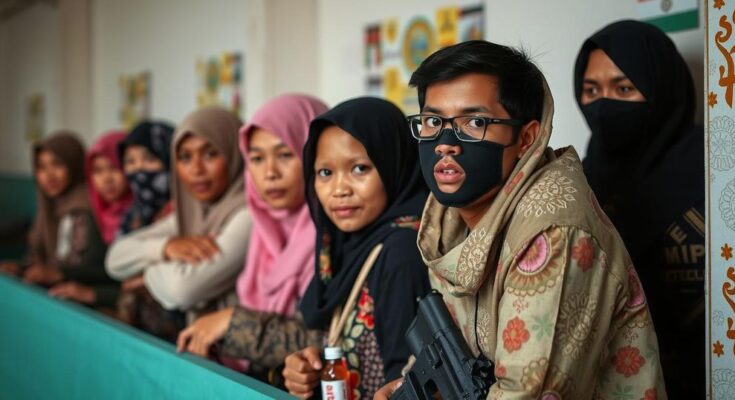Analysts advocate for Indonesia to repatriate about 400 citizens associated with the Islamic State in Syria following the collapse of the Assad regime. Repatriation is seen as essential to prevent further radicalization. The National Counterterrorism Agency is evaluating individuals for repatriation and emphasizes deradicalization, especially for children, to secure Indonesia’s safety and enable successful reintegration.
Analysts recommend that Indonesia should repatriate nearly 400 of its citizens currently linked to the Islamic State (IS) group in Syria. This shift in policy follows the recent downfall of President Bashar al-Assad’s regime and the emergence of a new leadership in Syria. Analysts emphasize that without repatriation, these individuals risk being further radicalized or exploited in ongoing global conflicts. The Indonesian government is advised to engage with the new Syrian authorities to facilitate repatriation and ensure that returning citizens can undergo deradicalization programs to safeguard national security. The National Counterterrorism Agency (BNPT) is currently evaluating individuals for repatriation while highlighting the urgent need to rehabilitate children and prioritize their return. Historical patterns of returned IS members engaging in extremist acts raise concerns about potential security risks, thus making a nuanced approach necessary. Ultimately, partnerships with civil organizations experienced in counterterrorism are seen as vital for effective reintegration and mitigating recidivism during this complex transition.
The Syrian conflict, ignited during the Arab Spring in 2011, has resulted in widespread turmoil and a significant number of foreign fighters seeking refuge in camps like al-Hol in Syria. Indonesia, as the largest Muslim-majority nation, faces unique challenges associated with returning citizens linked to militant ideologies. The country’s approach to this issue has evolved from a previous policy under President Joko Widodo, which was one of non-repatriation, to a more proactive stance under President Prabowo Subianto due to emerging political dynamics in Syria and the urgency of addressing the radicalization of Indonesian citizens trapped abroad.
In conclusion, Indonesia’s decision to consider the repatriation of its citizens affiliated with IS is a vital step toward mitigating security risks and addressing the socio-political challenges posed by their continued presence in foreign camps. By focusing on the deradicalization and rehabilitation of returnees, especially children, in partnership with civil organizations, the government may foster societal acceptance and reduce the likelihood of recidivism, thereby enhancing national security and social cohesion.
Original Source: www.benarnews.org



